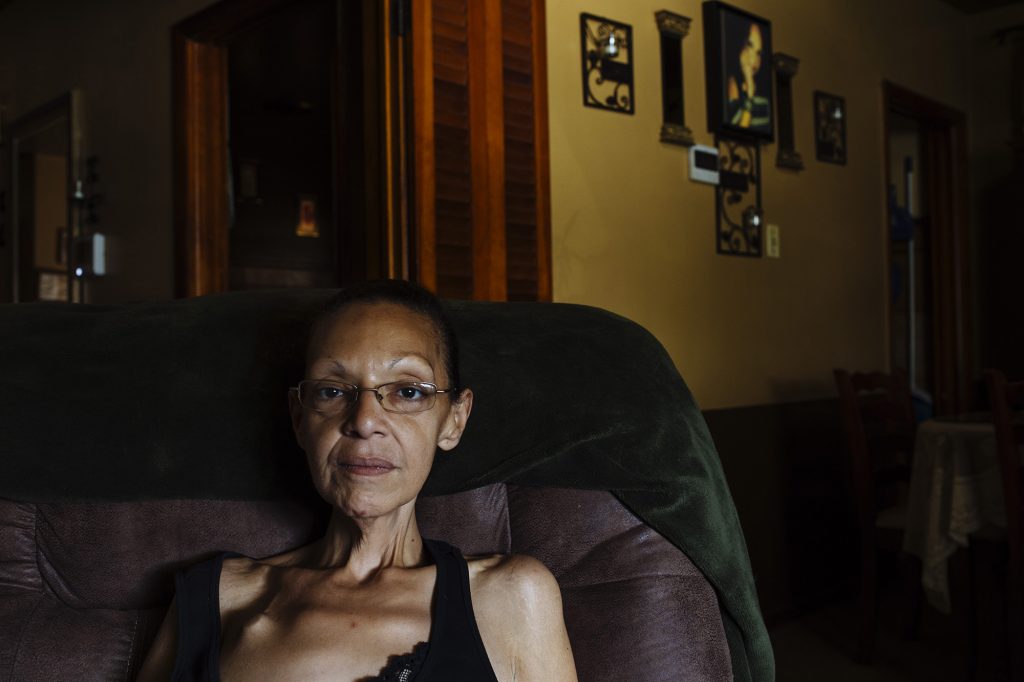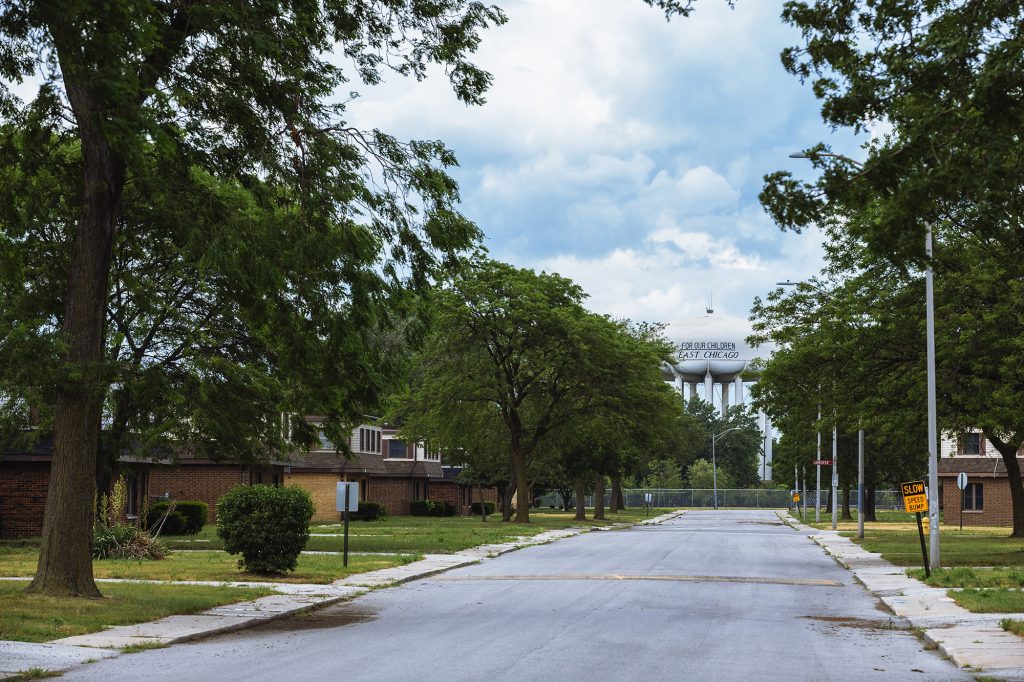East Chicago resident fights to educate others about contaminated water near Superfund site

Maritza Lopez, 54, has dealt with severe health issues her entire life. She lives near a Superfund site in East Chicago. (Photo by Michael M. Santiago/News21)
EAST CHICAGO, Ind. – Growing up in the Calumet neighborhood of East Chicago, Maritza Lopez, 54, has experienced a significant number of health issues that she believes have been a result of living in a city that has lead-contaminated drinking water. She said she lives in “ground zero.”
East Chicago is populated with mostly low-income black and Latino residents. It has been described as one of the most industrial cities in the United States, surrounded by companies such as Delaware-based chemical company DuPont and BP’s Whiting Refinery.
The Environmental Protection Agency declared the West Calumet Housing Complex a federal Superfund site after finding high levels of lead in the soil over several years. In December 2016, the EPA also found elevated levels of lead in the drinking water in the homes there.
The EPA has temporarily relocated residents while it begins cleanup of the contamination.
Lopez started noticing her health declining drastically when she was 10 years old: She started hemorrhaging out of her nose and mouth. At 12, her doctors said she had severe arthritis throughout her body. In her 20s, she began having heart palpitations and chest pains. By 33, she had worked through two sets of dentures. And between the ages of 33 and 38, Lopez was averaging two to three major surgeries a year.
“My body made tumors,” she told News21. “I had a tumor that just blew up overnight. … It was closing off my breathing.”
“I ended up having a heavy metals test done, and they found mostly lead, arsenic and cadmium in my system.”

The West Calumet Housing Complex was built on a former lead refinery, which for years contaminated the soil and water in the area. The housing complex is a Superfund site, and it was listed on the National Priorities List of worst-contaminated sites in the country in 2009. (Photo by Michael M. Santiago/News21)
Lopez helped to form the Community Advisory Group for the Calumet area after the West Calumet Housing Complex was declared a Superfund site in 2009. The EPA funds the group, and it meets weekly to help inform residents in the surrounding neighborhoods about the contaminated soil and drinking water and what steps they can plan to move forward.
Lopez and state Sen. Lonnie Randolph said the EPA and the city of East Chicago are not doing enough to address the contaminated drinking water.
“I don’t think they really understand and appreciate the seriousness of the situation, and it is a very serious situation,” Randolph said.
Lopez said the EPA has failed to test for other contaminants such as arsenic and polycyclic aromatic hydrocarbons, chemicals that naturally occur in coal.
Lopez is still fighting an ongoing battle with her health. She said her heart stops when it wants. She is anemic, and she suffers from severe headaches.
“I’m standing here by the grace of God and realize it’s to fight this and to be vocal,” she said. “And it’s not really standing, it’s sitting here in my recliner.”
To see the full News21 report on “Troubled Water,” go troubledwater.news21.com on Aug. 14.